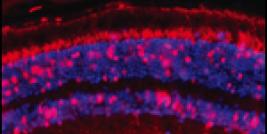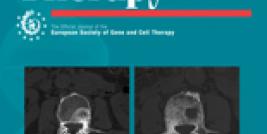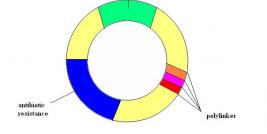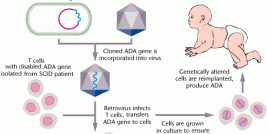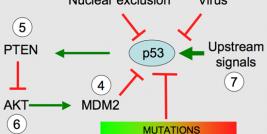Oxford, UK – 29 April 2009: Oxford BioMedica (LSE: OXB) announced today that it has entered into a new collaboration with sanofi-aventis to develop novel gene-based medicines, utilising the Company’s LentiVector® gene delivery technology, for the treatment of ocular diseases. Oxford BioMedica will receive an upfront payment of US$26 million (£18 million) and committed funding of up to a further US$24 million (£16 million) over three years. In addition, sanofi-aventis has an exclusive option for a worldwide licence to develop and commercialise four ocular products. If successful, Oxford BioMedica will receive further undisclosed license fees, milestone payments and royalties on product sales, the terms of which are consistent with other deals of this size and scope.
The initial payment from sanofi-aventis significantly strengthens Oxford BioMedica’s financial resources. As a result, with pro forma net cash1 as at 31 December 2008 of approximately £51 million, the Directors estimate that current cash is sufficient to support the Company’s operations into 2012.
Dr Marc Cluzel, Senior Vice President, Research and Development of sanofi-aventis, said: “Oxford BioMedica is a highly valued partner, and we respect their scientific expertise and highly skilled personnel. Our new collaboration in the field of ophthalmology complements our pipeline and overall strategy of developing innovative treatments for inadequately treated disease. The ability of Oxford BioMedica’s LentiVector technology to deliver genes into retinal cells efficiently and stably makes it a valuable system for gene-based approaches to ocular diseases. This collaboration is a key step in our strategy to expand our efforts in this field.”
Commenting on the deal, Oxford BioMedica’s Chief Executive, John Dawson, said: “We are delighted to have entered a new collaboration with sanofi-aventis for the treatment of ocular diseases, which enables us to accelerate and expand our development activities in this area. This multi-product collaboration, combined with the encouraging data emerging from the Phase I/II trial of ProSavin® in Parkinson’s disease, validate the tremendous potential and value of our LentiVector platform across many indications. The broad scope of our new partnership is in line with the Company’s strategy of reducing risk and maximising the value of our assets. By strengthening our financial resources, we are well-positioned for further growth and will continue to build the Company through in-house and collaborative drug development.”
Dr Stephen Rose, Chief Research Officer of the Foundation Fighting Blindness, which is collaborating with Oxford BioMedica, said: “The Foundation Fighting Blindness, which is committed to driving research that can save and restore sight, is delighted that sanofi-aventis, as a major pharmaceutical company, is investing in the field. This new collaboration between Oxford BioMedica and sanofi-aventis gives even greater hope to patients and their families that novel gene-based therapies may soon be developed to treat their debilitating ocular diseases. We will continue to work closely with Oxford BioMedica and hope to contribute to the successful development of these exciting product opportunities.”
The new agreement covers four LentiVector-based product candidates in the field of ophthalmology: RetinoStat® for wet age-related macular degeneration, StarGen™ for Stargardt disease, UshStat™ for Usher syndrome 1B and EncorStat™ for corneal graft rejection. The four products are addressing key unmet medical needs. There are currently no existing treatments for Stargardt disease, Usher syndrome and corneal graft rejection. Oxford BioMedica has granted sanofi-aventis a license to develop the products, and an option for further development, manufacture and commercialisation on a worldwide basis.
Oxford BioMedica will be responsible for preclinical development and for conducting initial Phase I/II studies. Under the joint development plan, the companies aim to advance all four product candidates into Phase I/II development within three years. At any time prior to or within a defined period after completion of each Phase I/II study, sanofi-aventis can exercise its option to license the products and will then assume responsibility for ongoing activities. Sanofi-aventis also has rights to broaden its license to develop the four products in additional indications, and has rights of first refusal to license other LentiVector-based products for the treatment of ocular diseases.










